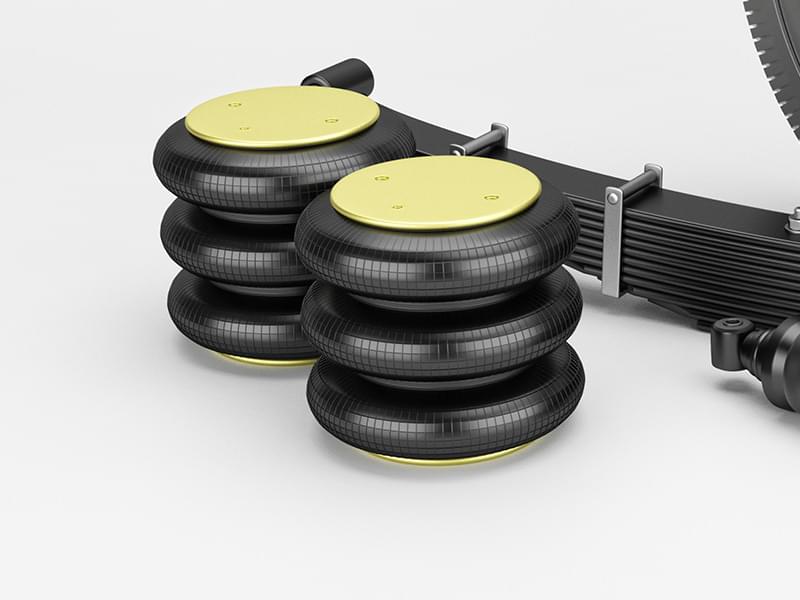
Q&A: Air Springs

Smithers experts Brad Sellers and Jeremy Elliott share their insights into air spring laboratory testing in this Q&A.
What is an air spring?
Also called an “air bag” or “air bellows,” an air spring is a rubber or composite suspension mechanism that can replace a traditional steel spring. Air springs are commonly used in heavy vehicles such as trucks, semi trailers, buses, and trains, but they are utilized in passenger car applications and even motorcycles as well.Air springs are used to improve ride quality by reducing vibration, hardness, and noise. Air springs also assist in leveling by lifting and lowering the chassis in relation to the axle. They lead to less wear and tear on trailers when compared to steel.
What sort of laboratory testing is valuable for air springs?
There are a variety of laboratory tests that can support product development or failure analysis of air springs, including:- Intercomponent adhesions, such as ply-to-cover, ply-to-ply, and ply-to-liner.
- Component thickness measurements
- Environmental exposure, such as ozone, oxygen, UV, Xenon arc, and others
- Rubber basic physical properties, such as stiffness
- Rubber hysteretic properties
- Whole product dynamic testing
- Composition analysis of both cover and liner
How can Smithers support air spring manufacturers?
The experts at Smithers have years of experience testing and studying rubber products and automotive components. Our experts can:- Provide independent, third-party performance data for regulatory and industry standard requirements
- Design and execute benchmarking studies to compare and study competitive products
- Conduct loss of serviceability investigations and root cause analysis
To learn more or to discuss a testing project, contact Jeremy Elliott at 330-762-7441 or jelliott@smithers.com.
